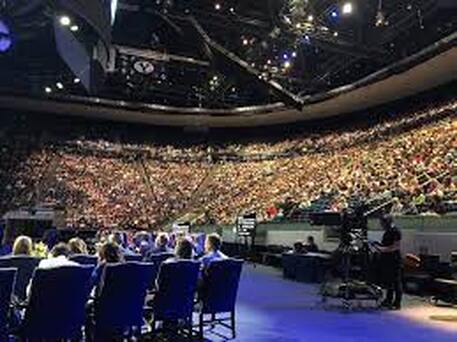
"I don't play the piano. I don't have a great solo voice. I don't really know anything about leading music, but I guess I do like to sing. How can I do this calling?"
Well, let's discuss first things first. The good news is that you like to sing. With that as a starting point, you can grow your skills to become an effective Music Leader in Primary. I would say that enjoying singing and loving the children are the most important parts of the calling. Other skills can be taught and mastered over time.
Teaching the Music in Primary is mostly a DEMONSTRATION activity. You don't necessarily need a trained solo voice in order to do the calling, but it helps if you can develop CONFIDENCE IN YOUR SINGING. PRACTICE your own singing. Learn what you can about BREATHING and POSTURE so that you can MODEL those things for the children. Memorize the songs you are to teach. Sing with the proper FEELING and INTERPRETATION. Not every song should be sung the same way. Help the children find their own voices and variations in TONE and DYNAMICS. Help them learn to invite the SPIRIT as they sing.
Remember that your music period is SINGING TIME. That means that your teaching should involve actual SINGING for most of the minutes. Out of the 20-25 minutes, the children should be singing and experiencing music in many ways for most of the time. When PLANNING, be sure to do more singing than talking.
Most of the Primary songs in the Children's Songbook are between 30-60 seconds per verse. If you plan to sing four songs each week two times through each that only takes 6-8 minutes of your time. Imagine if in your teaching and reviewing, you do little activities where you do your "explaining" mostly by using singing and musical activities that support the singing. You could involve the children in more and better singing! You may even get so you sing 4-6 songs --- and a bigger variety of songs --- several times through each week.
Practice so that you feel confident DEMONSTRATING the melody and lyrics as you teach the songs. Sing part of a phrase yourself. Have the children sing it back to you. Do a few phrases, then review those few. (The pianist is the best tool in your tool belt. Have the pianist help you. However, you will need to plan your strategy so that the pianist knows how to support you!)
"But I'm an Alto! I can't sing as high as those songs are in the Primary Songbook." Well, you can and you should!
The Primary songs were not pitched for your benefit --- they were carefully pitched for the children's benefit. It is generally accepted that a child's range is about 1 octave from Middle C up to Treble C. Children need to learn to sing in their HEAD REGISTERS (light, high voices) in order to be able to HEAR and MATCH PITCHES! That's part of your job --- to help them sing in tune and ENJOY IT!
Conquering your own fears about singing alone in front of people is the first step to tackling this calling. That and learning to TEACH THROUGH SINGING! But you can do it! So GO AND DO!
 RSS Feed
RSS Feed